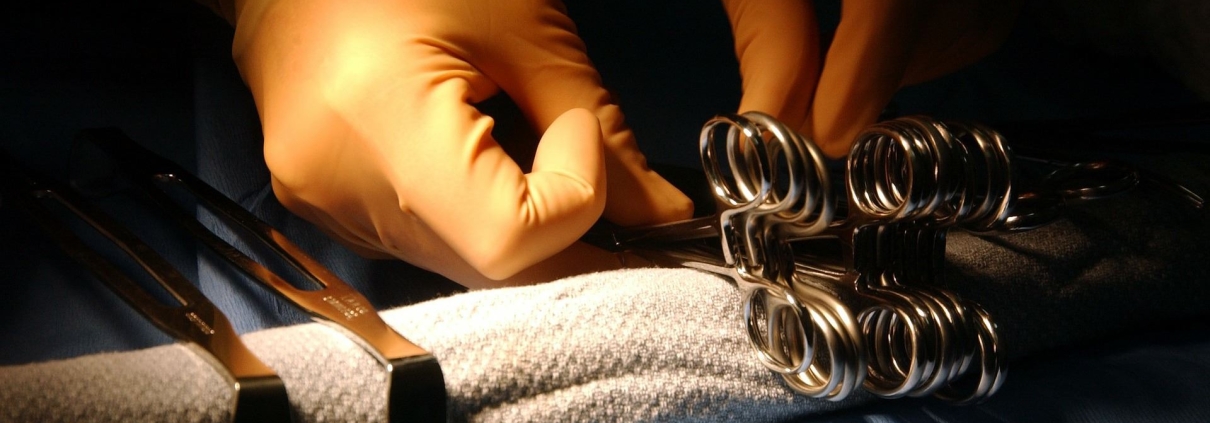
Are All Hernia Meshes Bad for You?
Hernia mesh is here to stay. A common treatment for hernias, the implantation of surgical mesh to “reinforce” the abdominal wall is growing in popularity. As a result, manufacturing mesh is a lucrative industry.
For the last 15 years, 1 million mesh units were sold per year in the U.S., and Business Wire reports that by 2025, the hernia mesh devices market will reach $199.6 million in this country. As more people suffer hernias, the companies that make meshes will do big business. The increased incidence of hernias directly correlates with America’s obesity epidemic, and mesh manufacturers intend to capitalize on it.
The science on meshes is still mixed, to say the least. The major benefit of mesh (that the hernia has less chance of reoccurring) is often offset by mesh-related complications these surgical implants can cause. Each device is slightly different and must go through the Federal Drug Administration’s 510k process before being put on the market. However, companies are allowed to introduce “similar” models to ones existing on the market with minimal testing. This loophole allows many defective or untested meshes to be implanted in patients.
Painful Side Effects of a Hernia Mesh
Many patients who have had hernia mesh implanted experience painful side effects, including:
- Migration of the mesh within the body
- Shrinking or bunching of the mesh
- Fistulas (abnormal connection/tunnel between two different body parts)
- Infections
- Bowel obstruction and perforation
- Chronic abdominal pain
- Chronic joint pain
- Adhesion of mesh and viscera (usually, the intestines)
- Renal (kidney) failure
- Liver damage
- Dyspareunia (pain when having sex)
- Reoccurrence of the hernia
- Allergic reactions
- Organ perforation
- Neurological changes
- Abscesses
- Seroma (a pocket of body fluid)
- Rejection of mesh by the body
In addition to the pain, a patient suffers, further surgeries may be needed to remove the mesh from the body entirely. These operations can be very costly and usually result in time off from work.
Some Mesh Devices Are Safer Than Others
We’ve found that type 1 (macropore) monofilament polypropylene meshes don’t cause too much trouble. For 50 years, these sheet meshes have been used for hernia repair. The standard lightweight models of today were introduced in 1998 with the Vypro. However, no mesh is completely safe.
What Goes in Hernia Meshes?
Many hernia repair specialists tout “lightweight” meshes as the answer to all hernia repair complications. “Unfortunately, despite these improvements, they continue to have complications such as recurrence, infection, and adhesion formation. Thus, the search for an ideal mesh continues.” (C.N. Brown and J.G. Finch, “Which mesh for hernia repair?” Annals of The Royal College of Surgeons of England, 2010; 92:272–78.)
Currently, hernia meshes, and surgical meshes in general, are made of three synthetic materials: polypropylene, extended polytetrafluoroethylene (ePTFE), and polyester. None is without its drawbacks.
The Ongoing Search for the “Ideal” Mesh
There are a lot of meshes out there. Dig a little deeper and you’ll be overwhelmed by how many types are manufactured. Did you know that so many variations of a medical device could exist for a relatively limited purpose? One reason for the variety is that medical science is still searching for the perfect mesh, one with no complications whatsoever. They haven’t found it yet. (Latest attempt: biomaterials, like pig intestine, which weaken almost immediately after implantation.) A mesh needs to integrate with the abdominal wall; resist adhesions with internal organs like the intestines; and not cause foreign body reactions—infections. So far, no hernia mesh has been able to perform all those functions without causing side effects.
Most people who have had hernia surgery have no idea what type or brand of mesh is now part of their bodies, but you know when you’re experiencing side effects.
A skilled medical malpractice attorney will be able to research your procedure and find out what type of mesh implant you received, whether your side effects are grounds for a defective medical device claim, and even what kind of compensation you can expect from the device’s manufacturer.
Rhine Law Firm, P.C., represents patients who have been injured by defective medical products. Call us today at (910) 772-9960 for a free consultation. We are currently handling litigation over defective hernia mesh, and we can guide you.
About Us
Rhine Law Firm, P.C. serves clients throughout North Carolina and nationwide, specializing in complex civil litigation led by Joel Rhine. With expertise in personal injury, car accidents, property damage, sex abuse, and more, the firm is passionate about taking on challenging cases. They emphasize providing personalized legal representation, prioritizing their clients’ best interests while offering state-of-the-art legal strategies. Rhine Law Firm’s dedicated attorneys enjoy the fight for justice and are committed to guiding clients through complicated legal processes. The firm offers free consultations, flexible appointment scheduling, and Spanish language services.




